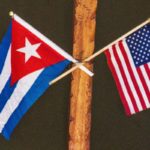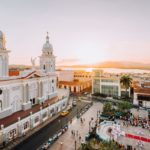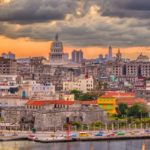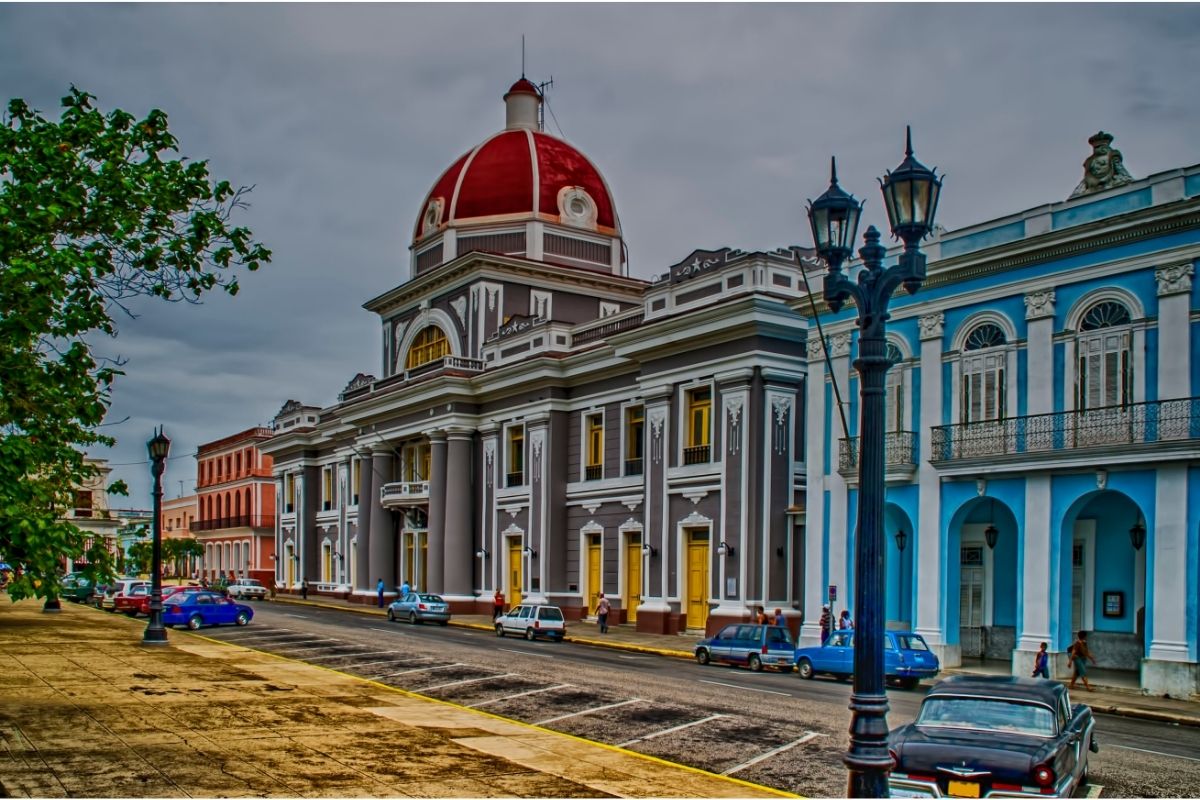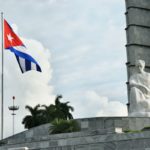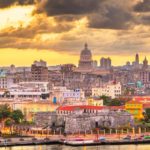When you hear the word ‘Cuba’ the first things that come to mind are probably figures like Che Guevara, and historical events like the Russian Missile Crisis and the Bay Of Pigs Invasion. But this fascinating country has so much to offer.
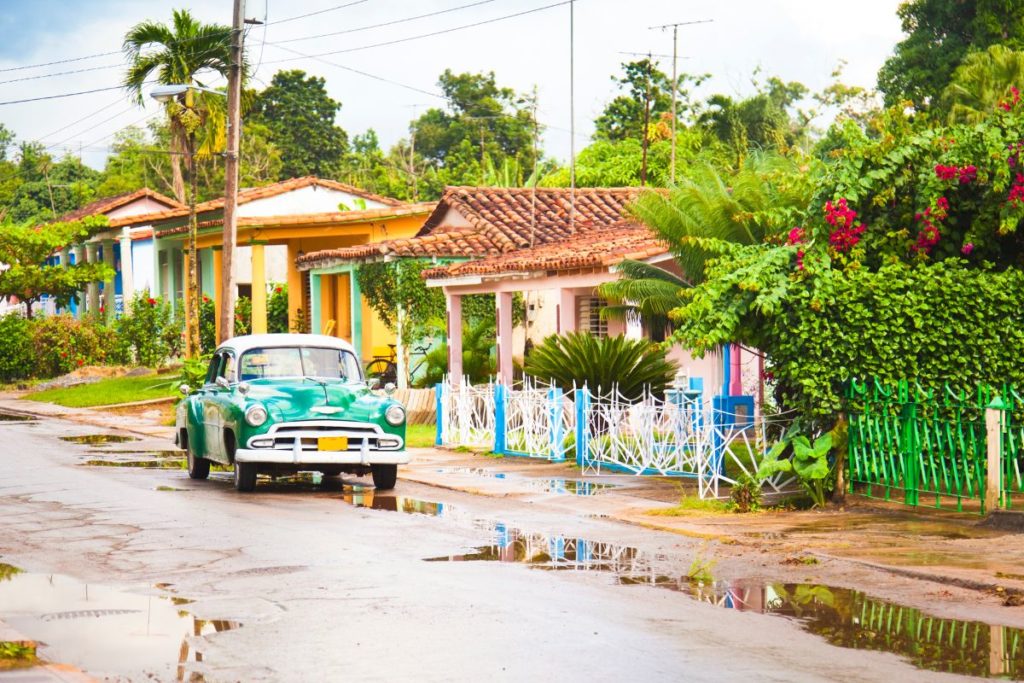
From its glittering sea and 2,000 miles of coastline, to the cuisine and Samba culture, Cuba is an extraordinary country to visit. But is it also a wonderful place to retire to?
This is what we’ll be unpacking in our article, particularly how you can go about owning property in Cuba if you’re not a Cuban citizen. Let’s dive in!
Why Should You Retire To Cuba?
There are many reasons why you should retire to Cuba. From its stunning Caribbean climate, and 300 days of sun, to its fascinating culture and cuisine, and its top-class health care system.
Plus, it’s a mere 90 miles from the USA, and while there are some legal technicalities with visiting there, it’s rather easy to do so.
Cuba is a warm and welcoming place, and Cubans have a very strong sense of national pride and will want to show off their country to you. It’s easy to see why! They are welcoming of visitors, and it will be pretty easy to fit into the community.
Music is a huge part of Cuban culture, and it’s easy to find street performers or music festivals to attend.
Cuba also has fabulous weather, with the temperature varying between 64.4 degrees Fahrenheit to 89.6 degrees Fahrenheit and the sun shines 300 days a year.
However, the humidity is something to consider. Cuba is a warm island and is humid pretty much all year round. Some retirees to Cuba struggle with this, so it’s definitely an important factor to consider.
But Cuba has many beautiful beaches and a crystal clear sea for you to take a dip in during a particularly humid day.
Cuba also has many outdoor activities for you to take part in, such as hiking, fishing, and water sports. So if you love the great outdoors Cuba is a great place to retire to!
Is It Even Possible To Retire To Cuba?
Technically, it is possible for non-Cuban citizens to retire to Cuba, as long as they can obtain a visa.
However, business visas and work permits are notoriously difficult to get and the only method of immigrating to Cuba that is guaranteed is marriage to a Cuban citizen.
However, the government is relaxing its laws around retirees coming to Cuba, and has begun to offer ‘snowbird’ visas.
A snowbird visa is a visa that lasts only for 6 months, but is pretty simple to renew. You will have to leave Cuba to renew the visa, but many retirees will spend the weekend in another Caribbean country before returning to Cuba once the visa has been renewed.
To get a snowbird visa you will first need to obtain a tourist card from the Cuban embassy. You can turn this tourist card into a snowbird visa once you’ve arrived in Cuba.
But if you hold a visa, you can still only buy property in certain circumstances, which makes buying property quite restrictive.
While the government is funding country club-esque developments in Cuba, these developments may be leasehold rather than freehold, with the lease terms lasting around 50 to 75 years.
At the moment it is very hard for foreign nationals to buy freehold residential property in the country that is not situated in internationally owned complexes. Most retirees living in Cuba rent ‘casa particulares,’ otherwise known as homestay accommodation.
Can Retirees Buy Property In Cuba?
It’s only in recent years that non-Cuban citizens were able to buy property in Cuba, thanks to the Real Estate Resident Visa. Still, the guidelines around this visa are quite restrictive.
To get a real estate visa and buy property in Cuba you need to either marry a Cuban citizen, buy property in the name of a Cuban citizen such as a spouse, family member, or friend, or buy directly from a non-Cuban citizen who already owns property in Cuba.
The easiest option is arguably the third, and the most viable option for any foreign retirees. However, you may discover a huge disparity in the prices of property.
Best Places To Retire To In Cuba
Although there are no restrictions to where retirees can rent a property in Cuba, of course there are benefits to living in areas that have more development and more of a buzz. The restrictions on buying property does also narrow down your options to cities like Havana.
Havana
The capital city of Cuba, Havana has diverse architecture that includes colonial structures and brightly colored buildings, and plenty of history. Havana is the epicenter of Cuban culture and politics, and is a truly vibrant city.
Santiago De Cuba
The second-largest city in Cuba, Santiago de Cuba is home to an annual carnival that is a favorite among tourists. The history of the city and its nightlife make it a great place to live.
Sancti Spiritus
Sancti Spiritus is a city in central Cuba, and is one of the oldest settlements in the country. As a result it has many historical sites and is an excellent place to visit to learn all about Cuba’s history. It’s also not a hotspot among tourists, so has a quieter vibe than other cities.
The Benefits Of Living In Cuba
Friendly, Welcoming People
While it is hard for retirees to buy property in Cuba, if you do you’re sure to be greeted with open arms by the locals.
Amazing Cuisine
Cuban cuisine combines the food of Spain, Africa, China, and many more. As there are trade embargoes placed on Cuba the country produces nearly all its own food. Still, the food available is diverse, high-quality, and also fairly cheap.
Cost Of Living Is Relatively Low
Although you have to arrive with suitable funds, Cuba still is a pretty affordable place to live. You may run into issues with the local currency though, as you’re unable to exchange US dollars there.
Beautiful Scenery
Cuba really shows off what is so great about the Caribbean. It has white beaches as well as beautiful mountains and rain forests. There is also little pollution in Cuba and there are sprawling nature reserves.
High Quality Healthcare
Cuban healthcare is exceptional, due to policy reforms that were made in the 1960s. However, foreign retirees do have to pay for their healthcare, but compared to some other healthcare systems around the world, Cuban healthcare is a lot cheaper.
The Drawbacks Of Living In Cuba
Trade Restrictions
Although food has worked around the trade embargoes you can definitely feel the effects of trade restrictions elsewhere. For example, Cuba is known for its old cars, and new cars are very expensive because of the low value of Cuba’s currency.
Few Property Options For Retirees
As we have seen, it’s difficult for foreign retirees to own property in Cuba. It is affordable to rent property, but this may add unnecessary stress when you want to retire and put those kinds of worries behind you.
Final Thoughts
Retiring to Cuba definitely isn’t as easy as retiring to other countries, but it still has a lot to offer for retirees. However, the government is relaxing their immigration policies and hopefully this will lead to a more streamlined process in the future.
The best way to see if Cuba is for you as a potential retirement plan is to visit Cuba and speak to foreign retirees there about their experience.
- What Is The Largest Island In Cuba? - September 19, 2022
- Havana – Why Is It Cuba’s Most Exciting City? - September 19, 2022
- Cheapest Time To Visit Cuba (Ultimate Guide) - September 19, 2022

